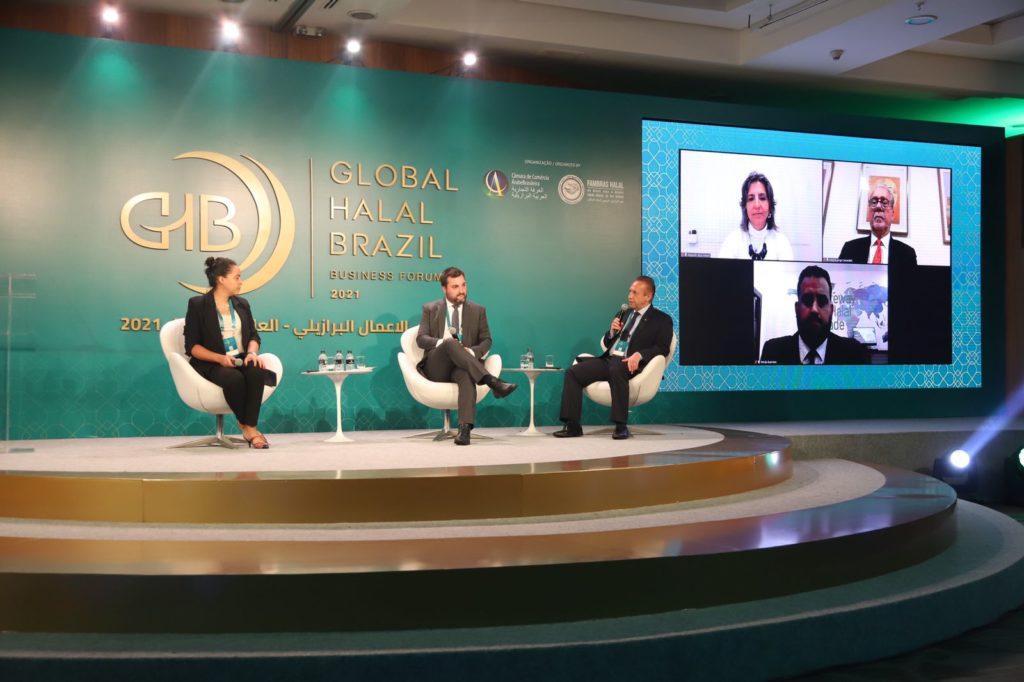São Paulo – Ready-to-eat products, such as prepared foods, should be increasingly demanded in the Arab and Muslim world, stated Tomás Guerrero, Halal Trade & Marketing Centre manager. The executive participated virtually in the Global Halal Brazil (GHB) business forum, which opened this Monday (6).
The executive spoke during the panel, “The future of the global halal food market.” “When we talk about the Muslim or Arab world, we are talking about expansion — A young population and consumption products growth. Countries are getting used to the availability of halal food, and this means the consumption patterns of the Arabs are advancing. And approaching a Western consumer behavior,” declared Guerrero.
The manager listed some paths companies intending to reach this value chain can follow. “[The consumer] will increasingly demand ready-to-consume products. In many cases, young people do not cook. [It is] a demand from this young population with much less time to cook and more purchasing power,” he added.
The change in consumption habits combines quality with practicality, believes Delduque Martins, director of International Relations at FAMBRAS Halal. “Today, consumers want simpler products with added value and, above all, seek quality,” said Martins.
Grazielle Parenti, Global Institutional Relations and Sustainability vice president of BRF (Brazil), encourages getting closer to target markets to understand the new demands. “It is essential to be there, and that is the reason we have headquarters in Abu Dhabi, an office in Oman, and so on. This tailoring is a matter of practicality, and nothing replaces getting closer and learning,” she said.
Another strategy for the sector’s next steps, according to the panel moderator, Fernanda Baltazar, International Relations manager at the Arab Brazilian Chamber of Commerce (ABCC), is to cooperate and seek partnerships.
In the same way thinks Luis Rua, director of Markets at the Brazilian Association of Animal Protein (ABPA). For him, partnerships are needed in the new paths the market demands. “We can say the main challenges are in three Ss: Safety, soundness, and sustainability. It is the concept of one health. This is valid for countries in the Middle East, North Africa, Southeast Asia, and worldwide. The historic partnership [of Brazil] with countries in the Middle East is proof we have managed to work connected with this trend,” pointed out Rua.
For Antônio Jorge Camardelli, president of the Brazilian Beef Exporters Association (ABIEC), it is also necessary to seek joint actions. “Stimulate uniformity among signatories of the OIC to have more peace of mind between importers and exporters. At this time of the pandemic, we had to strengthen technical discussions with the agencies. Perhaps we are at the best moment of synergy with Apex and the Ministry of Agriculture,” he said. The OIC is the Organization for Islamic Cooperation (OIC), and Apex-Brasil is the Brazilian Trade and Investment Promotion Agency (Apex-Brasil).
The forum runs until this Wednesday (8) with the sponsorship of Apex-Brasil, BRF, Pantanal Trading, Portonave, and Iceport. It can be watched on the event’s website upon prior registration or the ABCC’s YouTube channel. Simultaneous translation into English and Portuguese is available. The event is organized by the ABCC and the Federation of Muslim Associations of Brazil (FAMBRAS Halal).
Follow the complete forum coverage:
Read more about the GHB:
- Islamic market returning to pre-pandemic levels in 2021
- Brazil’s Temer: “Halal could go beyond Islamic market”
- Brazil must promote image to diversity exports
- Islamic economics education was impacted by COVID-19
- Apex-Brazil wants to take halal to small enterprises
- Post-pandemic world to invest in public healthcare
Translated by Elúsio Brasileiro




